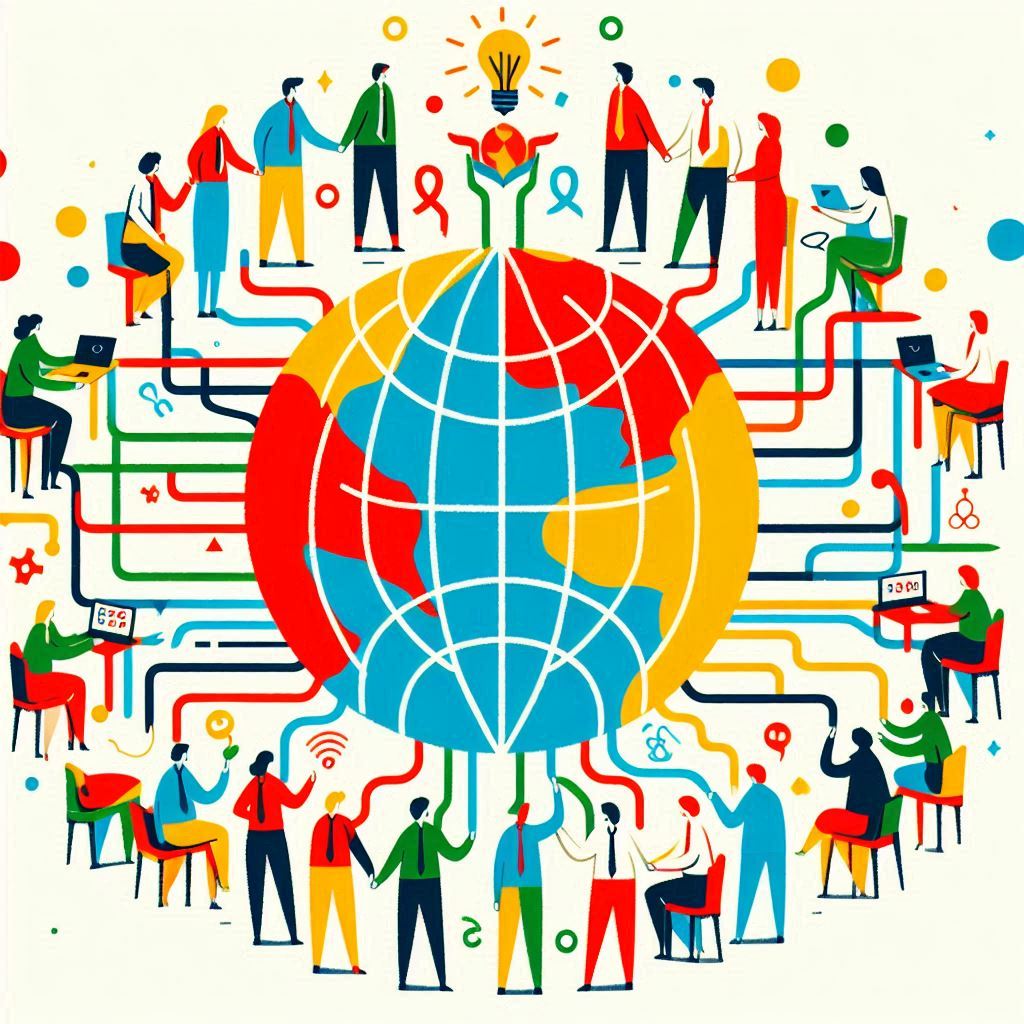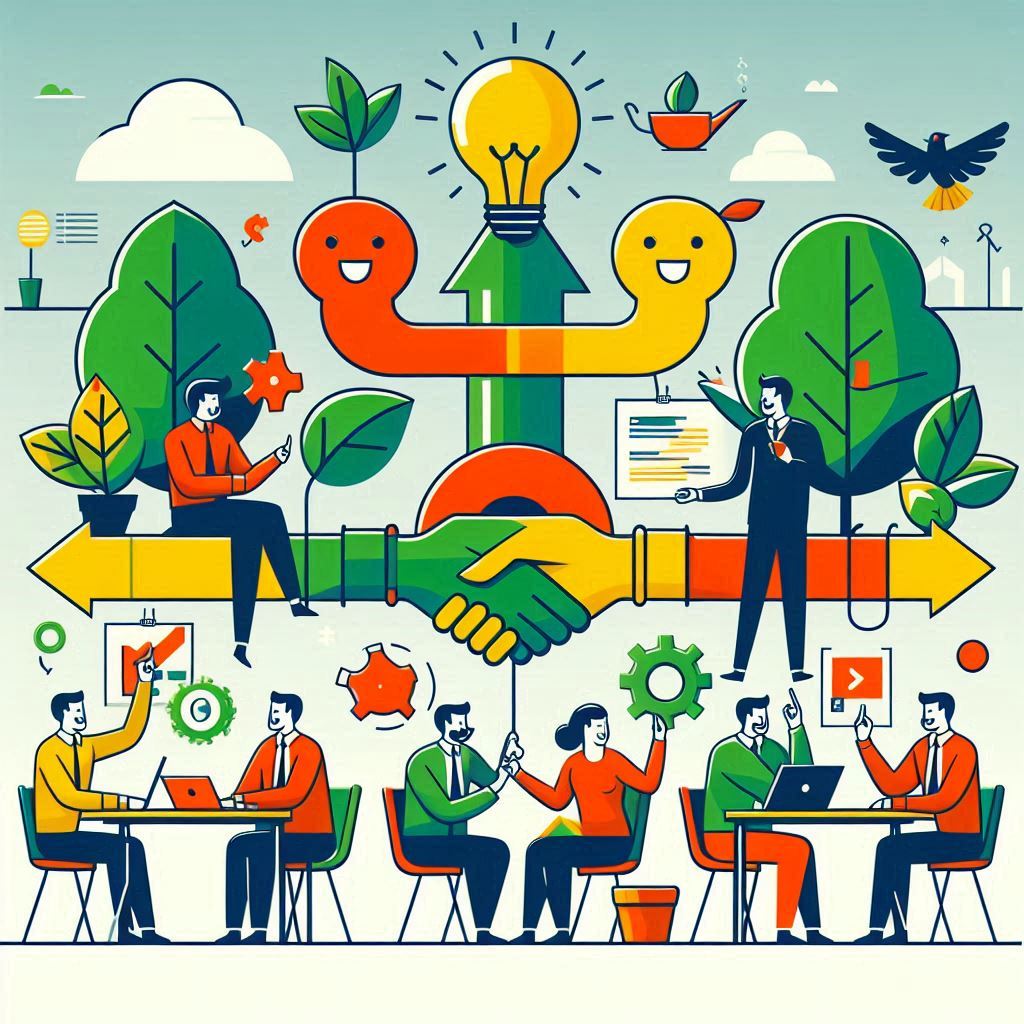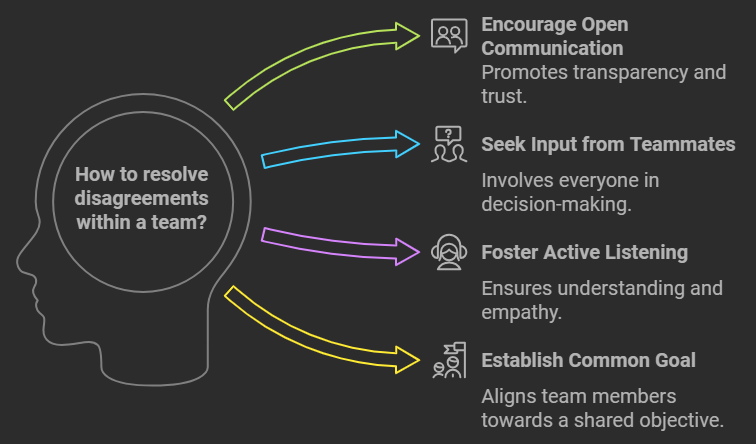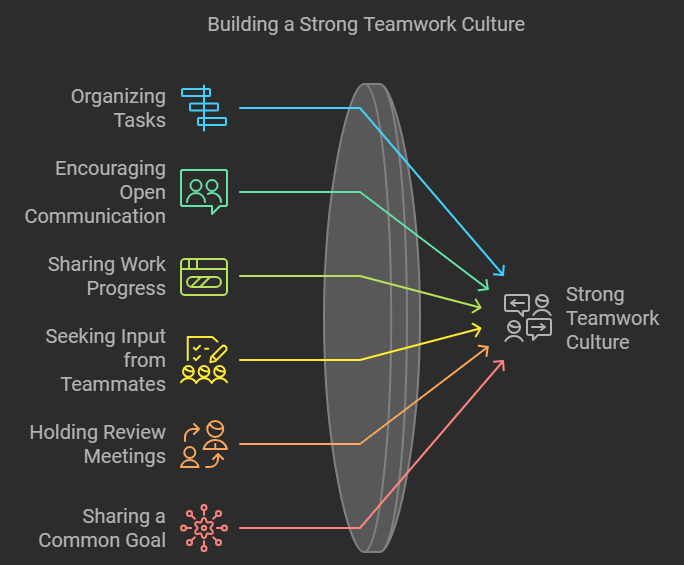Teamwork Thrives on Strong Organizational Culture
A strong organizational culture keeps a team together. When employees feel like they belong and share values, teamwork thrives. Organizational culture affects how people work, communicate, and collaborate. It creates a positive environment where employees are motivated to achieve common goals. Let’s explore how a solid organizational culture supports effective teamwork and benefits both employees and the company.
What Does a Teamwork Culture Look Like?
A teamwork culture in the workplace occurs when people communicate openly, share goals, respect each other, and work together. This type of culture encourages sharing ideas, solving problems, and helping each other, leading to a more efficient and harmonious work environment. A teamwork culture affects a team’s success and productivity by promoting creativity, innovation, and job satisfaction. This leads to higher productivity and a more positive work environment.
To promote and maintain a strong teamwork culture, tasks can be organized, input from teammates sought, review meetings held, successes celebrated, and engaging platforms utilized. Clear communication channels, achievable goals, and showing appreciation for contributions are also important.
Why Working Together at Work Matters

Collaboration and cooperation in the workplace are important. They lead to increased productivity, a more positive work environment, and higher levels of creativity.
Teamwork contributes to an organization’s overall success. It facilitates the sharing of ideas, effective problem-solving, and improved decision-making.
Fostering a strong sense of teamwork among employees results in increased morale, job satisfaction, and a greater sense of belonging within the organization.
Additionally, it leads to better communication, improved interpersonal relationships, and a more cohesive and unified workforce.
Celebrating successes and using engagement platforms can reinforce the benefits and importance of teamwork in the workplace.
How to Build a Team-Friendly Workplace

Setting Team Goals Together
Team members can work together to set mutual goals and priorities. They can do this by having open discussions, brainstorming, and setting collective objectives that match the organization’s mission.
Using tools like goal-setting worksheets and collaborative software helps ensure everyone’s ideas are included in the goal-setting process.
They can use strategies like setting SMART goals to make sure team goals are meaningful and achievable. Team members can also break larger goals into smaller tasks, assign roles based on strengths, and provide support and resources to help each member achieve their part of the shared objectives.
Members can hold each other accountable by having regular check-ins, tracking progress, giving feedback, and addressing any obstacles. Setting clear deadlines, milestones, and performance metrics helps make sure everyone meets their commitments.
Keeping Track of Our Group Work
The team can use various strategies to measure and track group progress and contributions effectively. Clear goals and a system for tracking each member’s achievements and the group’s overall progress are important.
Using digital tools like project management software or shared documents can also help monitor and measure productivity.
Implement strategies to ensure accountability for tasks and responsibilities within the group. This includes establishing a clear division of responsibilities, setting deadlines, and holding regular review meetings to evaluate each member’s performance.
Sharing work progress, seeking input from all team members, and showing appreciation for each other’s contributions can encourage accountability and ensure everyone is actively involved in the group work.
Establishing regular check-ins or communication channels to keep everyone informed about the status of the group work is crucial. The team can utilize tools such as setting up regular meetings, creating a shared communication channel, or using project management software for real-time updates and discussions.
Open and transparent communication is essential for keeping everyone informed and engaged in the group work.
Showing How to Handle Team Disagreements

Effective strategies for resolving disagreements within a team:
- Encourage open communication.
- Seek input from teammates.
- Foster a culture of active listening.
- Establish a common goal.
- Organize tasks.
- Share work progress.
- Effective leadership is important.
- Modeling conflict resolution.
- Providing guidance.
- Creating a supportive environment.
- Celebrating successes.
- Appreciating contributions.
- Utilizing engaging platforms.
Growing Stronger as a Team at Work

To build a strong teamwork culture in the workplace, you can:
- Organize tasks
- Encourage open communication
- Share work progress
- Seek input from teammates
- Hold review meetings
- Share a common goal
- Show appreciation for each other’s contributions
Working as a team is important for success, leading to increased productivity, creativity, and a more enjoyable work environment. To promote collaboration and unity among employees, celebrate successes, use engaging platforms, and align the organization’s values and mission with teamwork promotion.
Tips for a Great Teamwork Culture
When disagreements arise within a team, strategies such as:
- Modeling conflict resolution
- Facilitating open dialogues
- Encouraging the expression of diverse perspectives
can be used to maintain a positive teamwork culture.
To foster a team-friendly environment and encourage teamwork, the workplace can be designed to include:
- Collaborative spaces
- Flexible work areas
- Engaging platforms that facilitate communication and collaboration among team members.
Celebrating successes, providing opportunities for social interaction, and recognizing individual and team achievements also significantly create a workplace culture that supports teamwork.
Learning to Work as a Team
Working in a team can boost productivity and creativity and create a better work environment, which benefits individuals, organizations, and society.
Also, celebrating successes and using engaging platforms can help teamwork. Promoting open dialogue, active listening, compromise, and conflict resolution modeling can be helpful when handling disagreements. These approaches ensure that conflicts are managed constructively without disrupting the team’s productivity and morale.

Vizologi is a revolutionary AI-generated business strategy tool that offers its users access to advanced features to create and refine start-up ideas quickly.
It generates limitless business ideas, gains insights on markets and competitors, and automates business plan creation.


